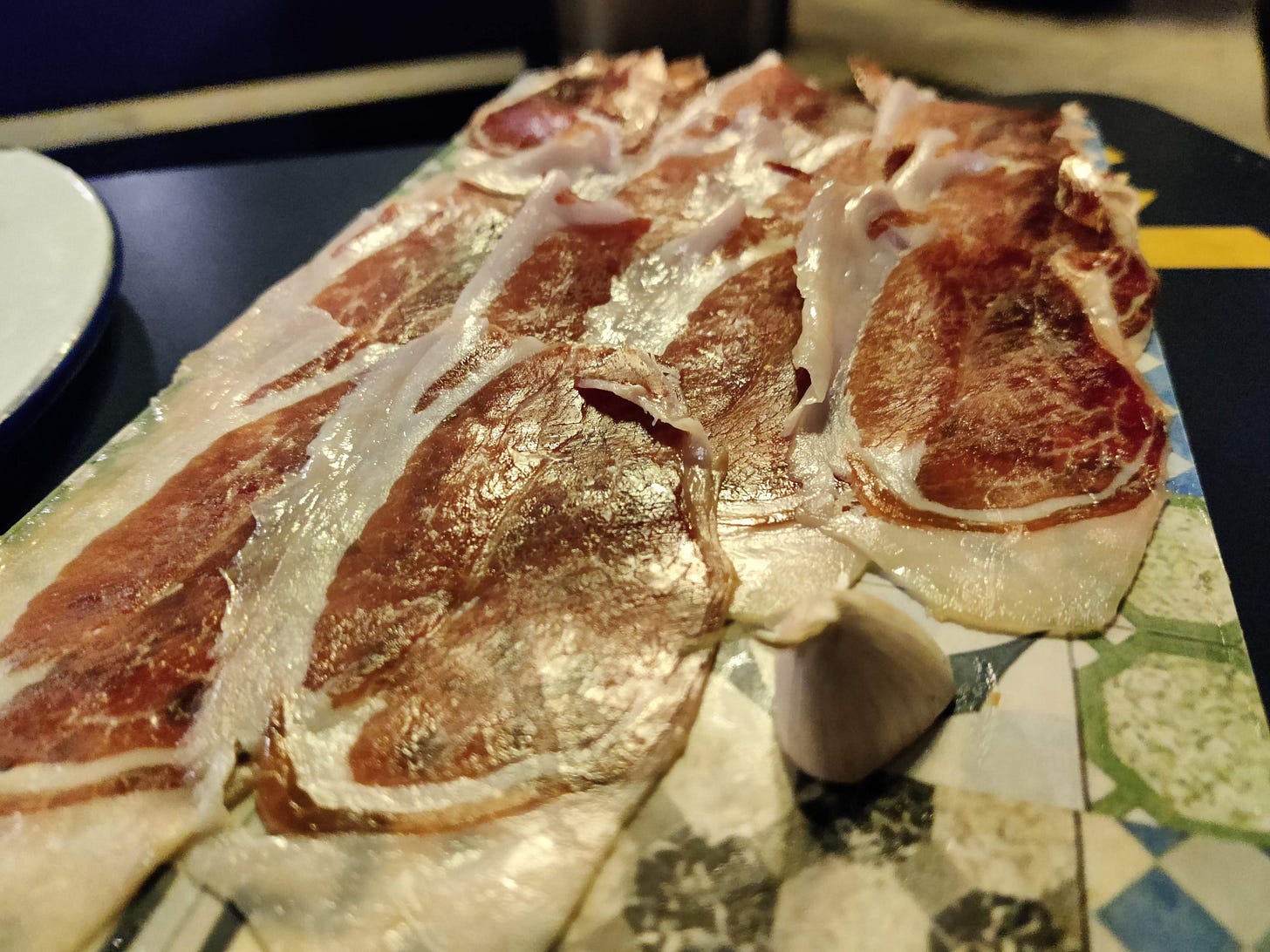Let there be bread
A newsletter about food systems, climate change and everything connected to them
This is going to be a short one folks because guess who has looming deadlines?
World Food Day
Tomorrow (Oct 16) is World Food Day and of course as a newsletter that focuses on food systems, I can’t let the day pass without mentioning here, even if briefly.
It essentially marks the founding of the Food and Agriculture Organization (FAO) in 1945 at a meeting in Quebec, but it wasn’t until 1979 that the day was designated as World Food Day.
The agency started life in Washington DC but moved to the Eternal City in 1951. This was apparently done by sea, with two ships, named Saturnia and Vulcania, sailing from DC to Rome in the early spring of 1951 with 76 families on board.
And guess what the latin in the FAO’s logo - Fiat Panis - mean? “Let there be bread.”
Since then, Rome has become a hub for UN agencies working on food issues. In case you’re not aware, here’s a little introduction to the Rome-based agencies, or in the UN parlance, RBAs.
FAO - Specialised UN agency that does what it says on the tin. It works with member states, especially developing nations, and provide technical support on anything related to food and agriculture.
WFP - World Food Programme. Born in 1963 to “deliver urgent food aid in real time to affected areas”. Still doing so, which means they run a massive - and impressive - logistics operations. Winner of last year’s Nobel Peace Prize “for its efforts to combat hunger, for its contribution to bettering conditions for peace in conflict-affected areas and for acting as a driving force in efforts to prevent the use of hunger as a weapon of war and conflict”.
IFAD - International Fund for Agricultural Development. It is the youngest of the bunch - set up in 1974 - and is a financial institution focusing on rural people. The agency says it has provided “US$23.2 billion in grants and low-interest loans to projects that have reached an estimated 518 million people” since 1978.
And here’s an interesting op-ed in the UK’s Independent paper by Ban Ki-Moon, former UN Secretary-General, to mark this year’s World Food Day.
He’s pushing for more funding for smallholder farmers to tackle both hunger and climate change. It’s a cause I can get behind. Also, I didn’t realise he grew up during the Korean War and experienced hunger himself.
I won’t keep rehashing the depressing statistics on hunger and malnutrition because you can find them in previous issues.
I suggest just being thankful for our fortunes when we have our next meal.
Jamón, Jamón
Speaking of meals, there have been some damning exposés on the consequences of Spain’s pork industry this week, from how its factory farms contributed to an ecological disaster in one of the Mediterranean’s most important salt water lagoons, to the exploitation and abuse faced by employees at slaughterhouses and cutting plants, many of whom are - you guessed it - migrants who dare not fight back.
As a big fan of jamón, that delicious Spanish dry-cured ham, and chorizo, the delicious spicy sausage, I found these news stories terribly depressing (now you know why I was saving the hunger statistics) but also very important. I’m just going to have to be super diligent about finding out where my next plate of jamón comes from!
Many of the stories are in Spanish so I’d recommend getting friendly with Google Translate.
The investigations were led by Lighthouse Reports, a newsroom I worked with earlier this year to look at how top-of-the-shelf spy technology from European companies may be aiding Myanmar’s brutal military junta. You can read more here on that work if you’re interested.
When good intentions don’t lead to good meals
To balance that packet of bad news, check out this great, albeit two weeks old, review in the New York Times of a trend-setting restaurant going full vegan.
It is by the great Pete Wells, NYT’s resident food critic.
Here’s a sample -
“In tonight’s performance, the role of the duck will be played by a beet, doing things no root vegetable should be asked to do. Over the course of three days it is roasted and dehydrated before being wrapped in fermented greens and stuffed into a clay pot, as if it were being sent to the underworld with the pharaoh.”
And no, the review isn’t just a diss at the restaurant. Wells asked some thought-provoking questions too.
Cool companies
Let’s end on a postive-ish note.
The latest newsletter from Unreasonable features some really interesting companies doing really interesting things, like C16 Biosiences that is coming up with what the company says is a sustainable alternative to palm oil using fermentation.
There were some interesting startups among the finalists at World Food Forum’s Startup Innovation Awards as well. There are AI-driven programmes to reduce bad stuff like food waste and a company making natural products using “light, water and CO2” as well as more tangible ones like solar-powered cold rooms for farmers in East Africa.
As always, have a great weekend! Please feel free to share this post and send tips and thoughts on twitter @thinink, to my LinkedIn page or via e-mail thin@thin-ink.net.









